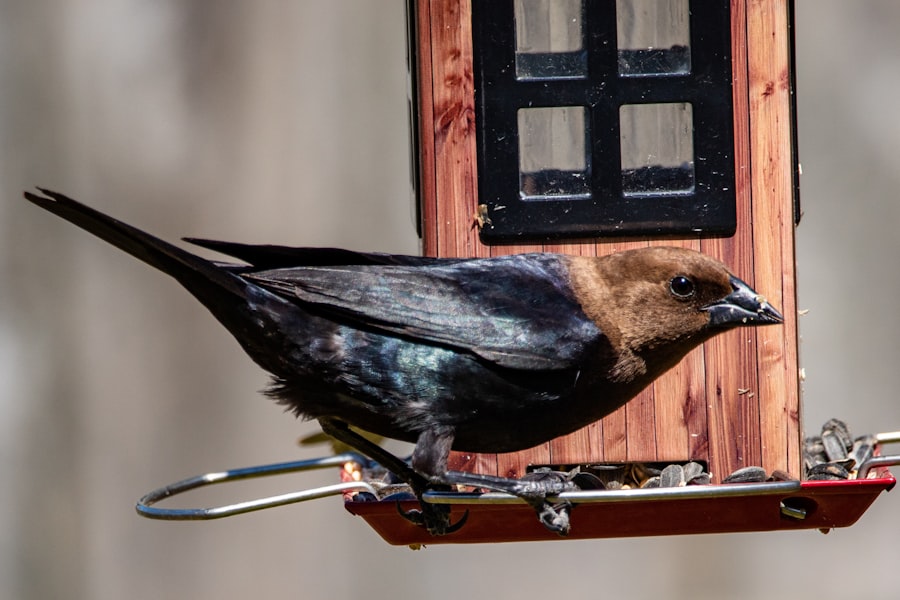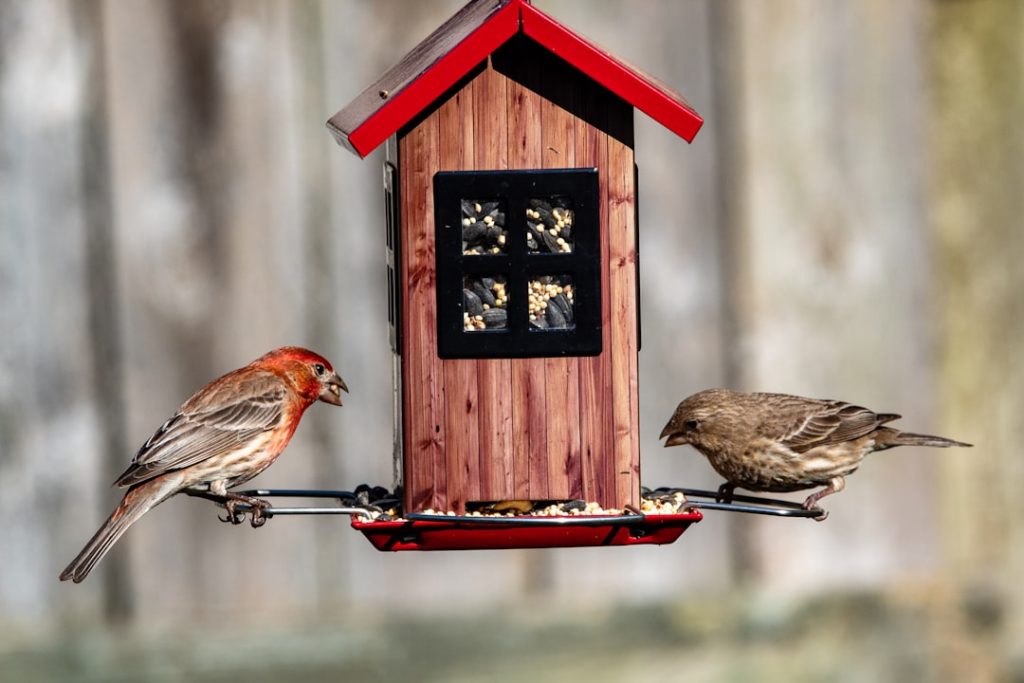When selecting chicken breeds for a backyard flock, several factors should be considered. Climate is a crucial element, as some breeds are better adapted to cold weather, while others thrive in warmer conditions. The intended purpose of the flock is also important; certain breeds are known for their egg-laying capabilities, while others are valued for meat production.
Temperament is another significant consideration. Docile and friendly breeds are preferable for households with children or other pets. Conversely, more active and independent breeds may be suitable for pest control in the yard.
The available space and desired flock size should also be taken into account. Some breeds are well-suited to small backyard flocks, while others require more room to roam. By evaluating these factors, poultry keepers can select breeds that best match their specific requirements and circumstances.
Climate adaptability, production purpose, temperament, and space requirements are key aspects to consider when choosing chicken breeds for a backyard flock. This careful consideration ensures that the selected breeds will thrive in their environment and meet the keeper’s objectives.
Table of Contents
Key Takeaways
- Consider the climate, space, and purpose of raising chickens when choosing the right breed for your backyard.
- Provide a secure and spacious coop and run setup to ensure the safety and comfort of your chickens.
- A balanced diet with proper nutrition is essential for the health and egg production of your chickens.
- Regular health check-ups, vaccinations, and parasite control are crucial for maintaining the wellness of your chickens.
- Regularly collect eggs and provide a clean and comfortable nesting area to ensure a consistent egg production.
Coop and Run Setup
Coop Requirements
Once you’ve chosen the right breed of chickens for your backyard flock, it’s time to set up a coop and run for them to live in. The coop should provide a safe and comfortable space for your chickens to roost at night and lay their eggs. It should also be easy to clean and maintain, with good ventilation to prevent the buildup of moisture and ammonia. Additionally, the coop should be predator-proof, with secure latches and sturdy construction to keep out predators such as raccoons, foxes, and birds of prey.
Run Requirements
In addition to a coop, your chickens will also need a run where they can exercise and forage for food. The run should be spacious enough to allow your chickens to move around freely, with plenty of room for dust bathing and scratching. It should also be protected from the elements, with a roof or cover to provide shade and shelter from rain and snow. Finally, the run should be securely fenced to keep your chickens safe from predators and prevent them from wandering into areas where they could get into trouble.
Key Considerations
By providing a well-designed coop and run for your backyard flock, you can ensure that your chickens have a safe and comfortable living environment. Remember to prioritize good ventilation, predator-proofing, and protection from the elements to keep your chickens happy and healthy.
Feeding and Nutrition

Proper nutrition is essential for keeping your backyard flock healthy and productive. A balanced diet will help ensure that your chickens lay plenty of eggs and maintain good overall health. A commercial layer feed is a convenient option that provides all the essential nutrients your hens need for egg production.
You can also supplement their diet with kitchen scraps, fruits, vegetables, and grains to provide variety and additional nutrients. In addition to their regular feed, it’s important to provide your chickens with access to clean water at all times. Chickens need plenty of water to stay hydrated and maintain good egg production.
You may also choose to offer oyster shells or crushed eggshells as a source of calcium, which is essential for strong eggshells. By providing a balanced diet and ensuring that your chickens have access to clean water and additional supplements as needed, you can help keep your backyard flock healthy and productive. Proper nutrition is essential for keeping your backyard flock healthy and productive.
A balanced diet will help ensure that your chickens lay plenty of eggs and maintain good overall health. A commercial layer feed is a convenient option that provides all the essential nutrients your hens need for egg production. You can also supplement their diet with kitchen scraps, fruits, vegetables, and grains to provide variety and additional nutrients.
In addition to their regular feed, it’s important to provide your chickens with access to clean water at all times. Chickens need plenty of water to stay hydrated and maintain good egg production. You may also choose to offer oyster shells or crushed eggshells as a source of calcium, which is essential for strong eggshells.
By providing a balanced diet and ensuring that your chickens have access to clean water and additional supplements as needed, you can help keep your backyard flock healthy and productive.
Health and Wellness
Keeping your backyard flock healthy is essential for their well-being and productivity. Regular health checks can help you identify any potential issues early on so that they can be addressed promptly. Look out for signs of illness such as lethargy, loss of appetite, abnormal droppings, or changes in behavior.
Additionally, it’s important to keep an eye on your chickens’ feet, legs, eyes, and feathers for any signs of injury or parasites. Preventative measures such as regular cleaning of the coop and run can help reduce the risk of disease and parasites. Providing a clean living environment with good ventilation will help keep your chickens healthy and comfortable.
Additionally, practicing good biosecurity measures such as quarantining new birds before introducing them to your flock can help prevent the spread of disease. By staying vigilant about your chickens’ health and taking proactive measures to prevent illness and parasites, you can help ensure that your backyard flock stays healthy and happy. Keeping your backyard flock healthy is essential for their well-being and productivity.
Regular health checks can help you identify any potential issues early on so that they can be addressed promptly. Look out for signs of illness such as lethargy, loss of appetite, abnormal droppings, or changes in behavior. Additionally, it’s important to keep an eye on your chickens’ feet, legs, eyes, and feathers for any signs of injury or parasites.
Preventative measures such as regular cleaning of the coop and run can help reduce the risk of disease and parasites. Providing a clean living environment with good ventilation will help keep your chickens healthy and comfortable. Additionally, practicing good biosecurity measures such as quarantining new birds before introducing them to your flock can help prevent the spread of disease.
By staying vigilant about your chickens’ health and taking proactive measures to prevent illness and parasites, you can help ensure that your backyard flock stays healthy and happy.
Egg Production and Collection
Egg production is one of the main reasons many people choose to raise backyard chickens. To maximize egg production from your flock, it’s important to provide them with a comfortable living environment, a balanced diet, and regular access to clean water. Additionally, ensuring that your hens have enough daylight hours can help stimulate egg laying during the shorter days of winter.
When it comes time to collect eggs from your flock, it’s important to do so regularly to prevent them from becoming dirty or damaged. You’ll want to provide nesting boxes in the coop where your hens can lay their eggs in a clean and comfortable environment. Collecting eggs daily will help ensure that they stay clean and fresh until you’re ready to use them.
By providing the right conditions for egg production and collecting eggs regularly, you can enjoy a steady supply of fresh eggs from your backyard flock. Egg production is one of the main reasons many people choose to raise backyard chickens. To maximize egg production from your flock, it’s important to provide them with a comfortable living environment, a balanced diet, and regular access to clean water.
Additionally, ensuring that your hens have enough daylight hours can help stimulate egg laying during the shorter days of winter. When it comes time to collect eggs from your flock, it’s important to do so regularly to prevent them from becoming dirty or damaged. You’ll want to provide nesting boxes in the coop where your hens can lay their eggs in a clean and comfortable environment.
Collecting eggs daily will help ensure that they stay clean and fresh until you’re ready to use them. By providing the right conditions for egg production and collecting eggs regularly, you can enjoy a steady supply of fresh eggs from your backyard flock.

Building Trust and Reducing Stress
Spending quality time with your chickens can help establish trust and reduce stress within the flock. Additionally, providing enrichment activities such as perches, dust bathing areas, and toys can keep your chickens mentally stimulated and physically active.
Introducing New Birds to the Flock
When introducing new birds to an existing flock, it’s essential to do so gradually to minimize stress and reduce the risk of aggression between birds. Providing ample space in the coop and run can also help reduce tension among flock members.
Creating a Happy and Fulfilling Environment
By socializing with your chickens regularly and providing enrichment activities, you can help ensure they lead happy and fulfilling lives in your backyard. With a little effort, you can create a harmonious and thriving flock that brings joy to your life.
Legal and Zoning Considerations
Before starting a backyard chicken flock, it’s important to familiarize yourself with any local laws or zoning regulations that may apply in your area. Some municipalities have restrictions on the number of chickens allowed per property or may require permits for keeping poultry. Additionally, there may be regulations regarding coop size, setback requirements from property lines or neighboring homes, or restrictions on roosters due to noise concerns.
It’s important to research local regulations before starting a backyard chicken flock so that you can ensure compliance with any applicable laws or zoning requirements. By doing so, you can avoid potential legal issues or conflicts with neighbors while enjoying the benefits of raising chickens in your own backyard. Before starting a backyard chicken flock, it’s important to familiarize yourself with any local laws or zoning regulations that may apply in your area.
Some municipalities have restrictions on the number of chickens allowed per property or may require permits for keeping poultry. Additionally, there may be regulations regarding coop size, setback requirements from property lines or neighboring homes, or restrictions on roosters due to noise concerns. It’s important to research local regulations before starting a backyard chicken flock so that you can ensure compliance with any applicable laws or zoning requirements.
By doing so, you can avoid potential legal issues or conflicts with neighbors while enjoying the benefits of raising chickens in your own backyard. In conclusion… Raising a backyard chicken flock can be a rewarding experience that provides fresh eggs, pest control in the yard, companionship with friendly birds, educational opportunities for children (and adults), as well as an overall sense of self-sufficiency by producing some of one’s own food at home.
By carefully considering factors such as breed selection based on climate suitability, temperament compatibility with family members or other pets at home; setting up an appropriate coop/run environment; providing proper nutrition; maintaining good health practices; maximizing egg production; ensuring socialization/enrichment; as well as understanding legal/zoning considerations – one can successfully raise a happy and healthy backyard chicken flock while complying with local regulations. With proper care and attention given throughout each stage – from selecting the right breed all the way through collecting fresh eggs – one can enjoy all the benefits that come with raising backyard chickens while avoiding potential pitfalls along the way!
If you’re considering keeping 3 chickens, you may also be interested in learning about caring for goslings. Poultry Wizard has a helpful article on how to care for goslings, which provides valuable information on raising and nurturing young geese. Understanding the basics of caring for goslings can be beneficial for anyone looking to expand their poultry flock and create a well-rounded and diverse homestead.
FAQs
What are the basic requirements for keeping 3 chickens?
To keep 3 chickens, you will need a suitable coop or housing, access to fresh water, a balanced diet of chicken feed, and a secure outdoor area for them to roam and forage.
How much space do 3 chickens need?
Ideally, 3 chickens should have at least 10 square feet of coop space and 40 square feet of outdoor space to roam and forage.
What should I feed my 3 chickens?
A balanced diet for chickens includes a commercial chicken feed, supplemented with fresh fruits, vegetables, and occasional treats like mealworms or scratch grains.
What are some common health issues for chickens and how can I prevent them?
Common health issues for chickens include parasites, respiratory infections, and egg-laying problems. To prevent these issues, provide a clean and dry living environment, regular access to fresh water, and a balanced diet.
Do I need to provide any special care for my 3 chickens during the winter?
During the winter, it’s important to provide extra insulation in the coop, ensure access to unfrozen water, and monitor for signs of frostbite on the chickens’ combs and wattles.
Meet Walter, the feathered-friend fanatic of Florida! Nestled in the sunshine state, Walter struts through life with his feathered companions, clucking his way to happiness. With a coop that’s fancier than a five-star hotel, he’s the Don Juan of the chicken world. When he’s not teaching his hens to do the cha-cha, you’ll find him in a heated debate with his prized rooster, Sir Clucks-a-Lot. Walter’s poultry passion is no yolk; he’s the sunny-side-up guy you never knew you needed in your flock of friends!







